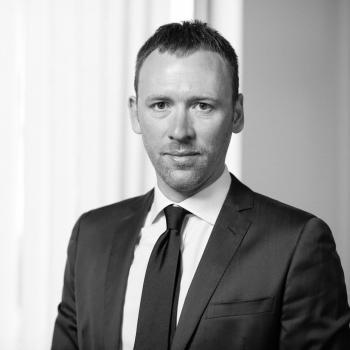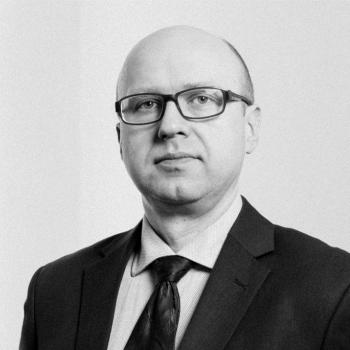NJORD Latvia: European regulations do not allow to confiscate property without establishing a criminal act
As it is known, in the self-liquidation of the Latvian bank ABLV (hereinafter referred to as the "Bank"), the financial assets of the Bank’s clients were initially frozen by the Latvian Financial Intelligence Unit, and then criminal cases were initiated on suspicions of money laundering (hereinafter referred to as the "Main Proceedings"). In the context of these criminal proceedings, funds and securities worth millions of euros were seized. When the maximum term for asset seizure expired in opened criminal cases, the investigation institution used to initiate special proceedings regarding criminally acquired property. As part of these proceedings, motions were submitted to the court to recognize the assets seized during the Main Proceedings as having been criminally acquired and to confiscate them according to the Section 59 of the Latvian Criminal Procedure Law (hereinafter referred to as the "Special Proceedings"). In cases when in the Special Proceedings the Bank’s clients’ assets were confiscated, the Main Proceedings were either terminated without charges or remained in a "dormant" pre-trial investigation state.
Some ABLV Bank clients, whose assets were confiscated under the Special Proceedings, appealed to the Constitutional Court of Latvia (Satversmes tiesa) challenging the constitutionality of certain provisions of the Criminal Procedure Law that regulate the confiscation of property deemed to have been criminally acquired (essentially, the legality of the Special Proceedings). NJORD attorneys, providing legal assistance to two clients affected by asset confiscation under the Special Proceedings, also submitted constitutional complaints to the Constitutional Court of Latvia.
Considering that the existing regulations for the Special Proceedings were established by Latvian legislators with reference to requirements set forth by European Union (EU) regulations, including the European Parliament and Council Directive 2014/42/EU of April 3, 2014 on the freezing and confiscation of instrumentalities and proceeds of crime in the European Union (hereinafter referred to as the "Directive"), the Constitutional Court of Latvia determined that an official interpretation of these EU regulations was necessary for proper resolution of the case. Such interpretation falls under the exclusive jurisdiction of the Court of Justice of the European Union (CJEU). Therefore, the Constitutional Court of Latvia sought a preliminary ruling from the CJEU, requesting clarification of several EU legal acts, including the Directive, which served as the basis for the current version of Section 59 of the Latvian Criminal Procedure Law. The main issue before the Constitutional Court of Latvia concerned the compatibility of Section 59 of the Latvian Criminal Procedure Law with the Council of the EU Framework Decision 2005/212/JHA on the confiscation of crime-related proceeds, instrumentalities, and property, and the Directive, particularly whether the provisions of the Special Proceedings, which allow for the confiscation of assets before a person is convicted of a crime under the Main Proceedings from which the Special Proceedings were derived, are consistent with these EU legal acts.
On October 4, 2024, the First Chamber of the Court of Justice of the CJEU announced its decision, stating:
"The Council Framework Decision 2005/212/JHA and Directive 2014/42/EU must be interpreted as not including Latvian legal regulations that allow, within the scope of criminal proceedings aimed at establishing the fact of a person’s commission of a crime (i.e., the Main Proceedings), the initiation of proceedings for the confiscation of the criminally acquired property (i.e., the Special Proceedings) if such Special Proceedings are not related to establishing the commission of a crime, and when there are no reasons such as illness or escape preventing the person from appearing in court." In other words, according to the CJEU, the Special Proceedings do not comply with the referenced EU legal acts.
It is important to note that since the inclusion of the Special Proceedings in the Latvian Criminal Procedure Law was based on the Council Framework Decision 2005/212/JHA and the Directive, investigators and prosecutors justified the legitimacy of asset confiscations within the Special Proceedings by referring to these EU legal acts. However, the decision of the CJEU concluded the opposite, specifically that the EU regulations do not provide for the recognition of assets as criminal and their confiscation under such a special procedure as provided by Latvian law.
In light of the CJEU's decision, the Constitutional Court of Latvia is required to resume proceedings on the applications submitted by individuals who believe their rights were violated under the Special Proceedings. According to the Constitutional Court's schedule, several hearings on these cases are set for November 13, 2024.
Following the decision of the Constitutional Court of Latvia, previously suspended cases within the Special Proceedings are expected to be resumed.
NJORD Law Firm has extensive experience providing legal assistance to ABLV Bank clients in cases concerning assets deemed to have been criminally acquired. We are among the leaders by the number of clients in this area, and we are pleased to note that with our assistance many clients have already received payouts from ABLV.
Our experience allows us to accurately assess the chances of a bank creditor in court proceedings and offer appropriate fees for representing the client's interests in the case. Depending on the specific situation, various fee models may be offered to the client, including, in some cases, success fee model.
If you have any questions or require further consultation regarding the information mentioned above, please contact the partners of the Riga office of NJORD Law Firm—attorney Dmitri Kolesnikov (+37167313315, dk@njordlaw.lv) and attorney Dmitri Nikolaenko (+371 67 313 315, dn@njordlaw.lv).

